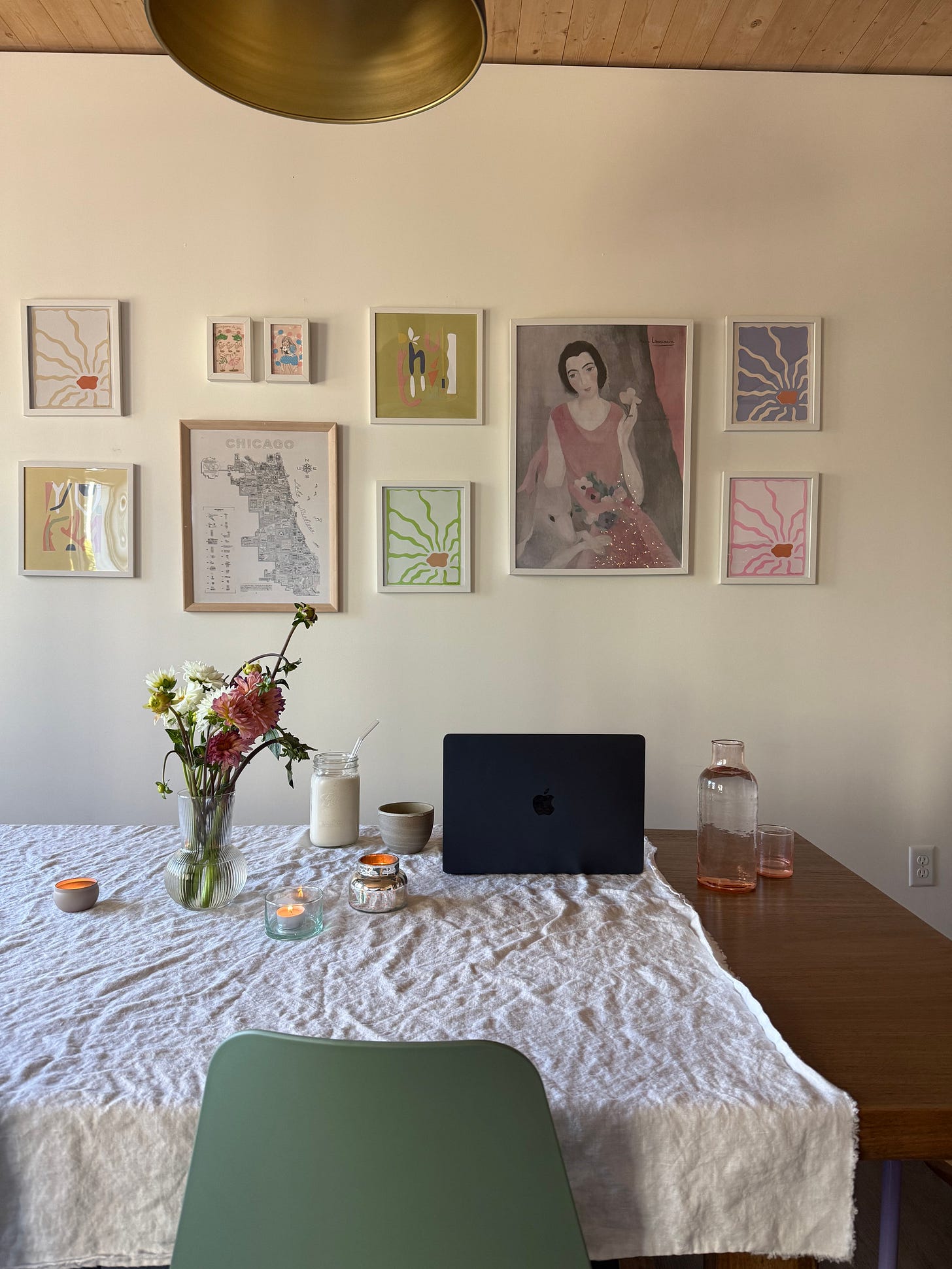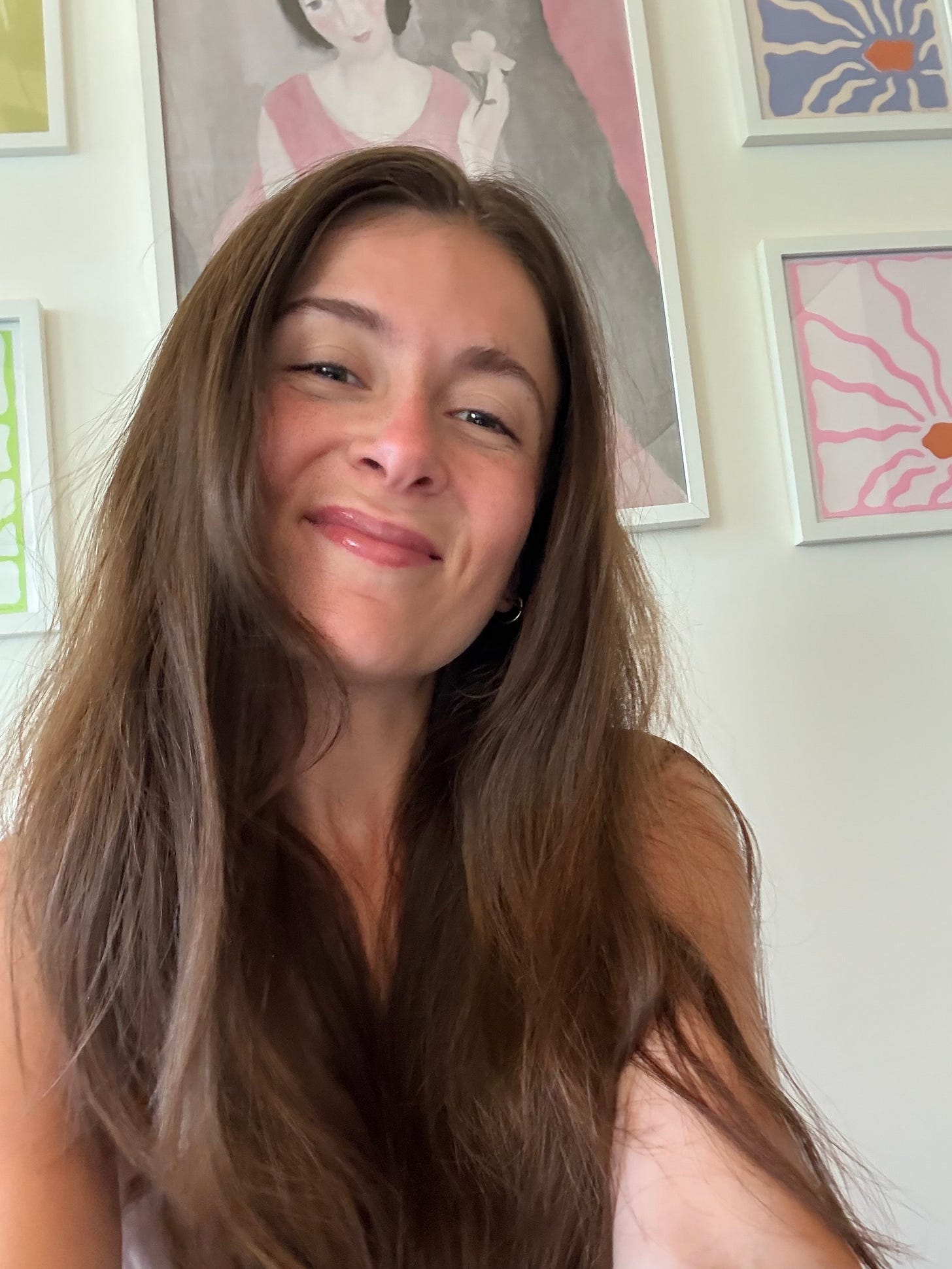If It’s All Privilege, Then What Was Mine?
On the messy truth of relative luck, self-creation, and what it means to own your life.
There’s a particular shame in wondering if you’ve done anything on your own. It’s not something people admit out loud—at least not in polite conversation. But it’s a question I come back to again and again: If so much of my life can be traced to circumstances I didn’t choose, can I really claim to have built anything at all?
I’m not a nepo baby. I’ve never had a trust fund or the kind of inherited safety net that allows someone to leap without fear of falling. But I also can’t deny that I was given a lift in life that others didn’t have. Whiteness. A good education. Parents who—while complicated—never let me go hungry. “Pretty privilege,” the kind that came with starving myself into a body deemed acceptable. It feels impossible to untangle these strands from the person I’ve become.
And yet, even with all of this, I have felt desperate. Lisa Taddeo writes in Animal about how building your life around other people can put you in survival mode, and that struck me as true in a way I didn’t want to admit. You can have advantages and still live with the gnawing sense that everything could disappear tomorrow. I’ve felt that, too. The clutching. The low-grade panic that comes when your life feels circumstantial rather than earned.
I remember living in Paris during my junior year abroad and feeling paralyzed by how lucky I was. I would sit in cafés after class, watching the city unfold around me, the river flashing light between the bridges, and feel a guilt I couldn’t name.
Why me?
I couldn’t answer the question, so I filled my days with work. I was an au pair in the evenings, an assistant in the afternoons, a researcher for a professor back home who emailed me in clipped sentences. I was busy, always. Because learning—being able to simply be there—felt too much like indulgence, and I couldn’t stomach the thought of only receiving.
None of these jobs paid much, but they gave me the illusion of contribution. My thesis—on a subject no one would ever ask me about again—became a lifeline. Was it making me money? No. But was it making me feel like I deserved all the beauty that came to me? Absolutely. And at twenty, that was everything.
Looking back, I see that compulsion for what it was: a desperate attempt to justify my place in a world I believed I hadn’t fully earned.
The world is comfortable reducing us to the sum of what we were given. And maybe they’re right—at least in part. But I can’t let myself off the hook so easily. I think about the choices I’ve made. The moments I’ve stood at a precipice and said yes when no would have been safer. The work I’ve done quietly, when no one was looking, to push toward something better.
Still, the question lingers: If others can explain away your success as the product of privilege, does that make it true?
I am embarrassed by how much I have cared about being seen as self-made. As if independence were the ultimate measure of worth. There’s a part of me that still believes that—because I know what it’s like to be dismissed. To feel the subtle, almost imperceptible tightening in someone’s voice when they realize you had certain advantages. And worse, to wonder if maybe they’re right about you.
But here’s the truth I’m beginning to circle: the binary doesn’t hold. I have privilege and I have worked hard. I’ve had support and I’ve taken terrifying risks. I’ve been lifted, and I’ve clawed my way out. Both are true. Both can be true.
It’s a tricky thing, though, to live with nuance in a world that thrives on absolutes. We want people to be deserving or undeserving, lucky or unlucky, good or bad. But life rarely offers such clean lines.
Sometimes I wonder if part of this obsession with proving myself is a deep, unspoken fear that I’m not enough. That without the things I’ve been given, I would be unremarkable. Maybe that’s what pushes me to work as hard as I do. To write and rewrite. To take risks that feel reckless to everyone else. Because if I can just make something that’s mine, maybe I’ll quiet that voice.
But I know how futile that thinking can be. Privilege doesn’t disappear just because you bleed for something. And the reverse is true: lack of privilege doesn’t make your accomplishments more valid.
So I’m trying to stop thinking of my life as a ledger. I’m tired of tallying what I was given and what I’ve earned, as if there’s some final equation that will prove I deserve to be here.
I keep returning to something else Taddeo wrote, though I might be misremembering the exact words. It was about how people can both have resources and feel like they’re drowning. That paradox—the coexistence of luck and lack—feels like the truest thing I know.
I want to believe that what I’ve built is mine. That the life I have now is not merely a product of the scaffolding around me but also of the work I’ve done when it would have been easier to stop. There were nights when I thought the failure was inevitable, and still I kept going. There’s something to be said for that.
But maybe the real work is letting go of the idea that I need to prove anything at all. Maybe the real work is holding my privilege in one hand and my grit in the other and saying: both matter. Neither tells the whole story.
The truth is, there will always be someone with more and someone with less. And comparison, in either direction, is a thief. I’m learning to claim what I’ve done without apologizing for what made it possible.
Because yes, other people have shaped me. They’ve opened doors and made calls and believed in me when I didn’t. And I’ve walked through those doors. I’ve shown up to the rooms they put me in and worked until my hands hurt.
I can be grateful and proud at the same time.
And maybe that’s what self-creation actually looks like—not a clean separation from what you were given, but a willingness to own it all.






